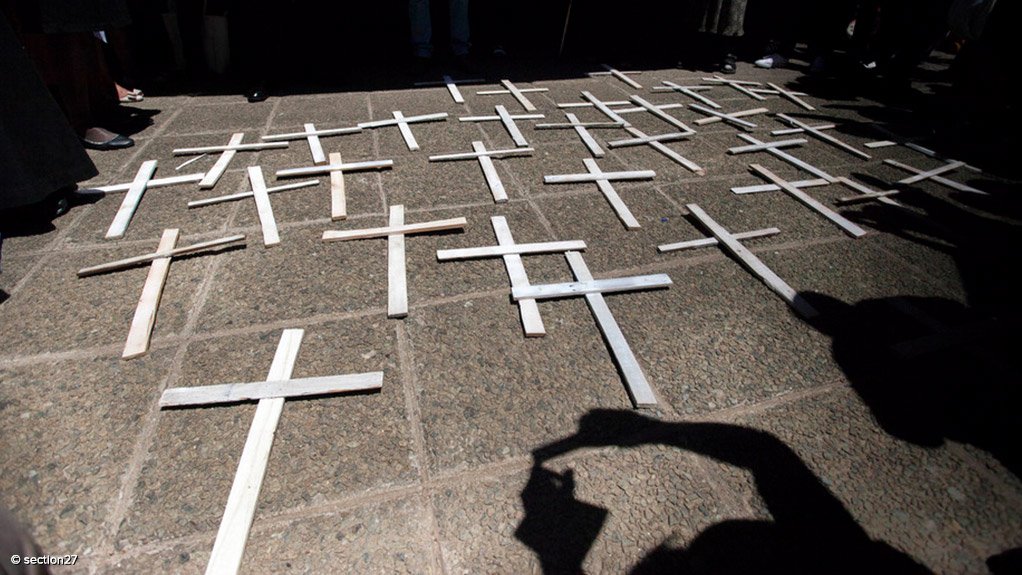Long after the funding for his project was frozen, Bilal Endris has kept a lonely watch over cemeteries in Ethiopia's capital by slipping cash to gravediggers to alert his team to any sudden spikes in burials.
In a nation where fewer than 2% of deaths are registered, an increase in burials may be one of the first signs that a killer disease is on the loose.
The program was set up to monitor deaths related to HIV/AIDS a decade ago. Now doctor Bilal monitors for a spike in fatalities linked to Covid-19.
He has yet to see one, but projects like his are being set up in other African countries where many deaths go unrecorded, making it hard to assess the scale of a disease. In some cases, nations are dusting off programs set up during Ebola outbreaks.
Bilal himself has secured additional funding to restore the program to all 73 of Addis Ababa's cemeteries from just 10 now.
Only eight countries in Africa - Algeria, Cape Verde, Djibouti, Egypt, Mauritius, Namibia, Seychelles, and South Africa - record more than 75% of deaths, according to the United Nations.
In other regions, where official data is readily available, researchers have used the number of deaths from all causes that exceed the average for the time of year to help gauge the number linked to the coronavirus pandemic.
"In Ethiopia and everywhere across Africa ... we go blind." Bilal told Reuters. "I wanted to turn the health care system into one based on evidence."
In the capital Addis Ababa, less than 20% of deaths occur in hospitals, Bilal said, so monitoring deaths requires talking to community leaders and burial grounds.
In Nigeria, Africa's most populous nation, media reports citing gravediggers alerted authorities to an undetected Covid-19 outbreak in the northern city of Kano in April, when deaths surged from a daily average of 11 to 43.
COUNTING THE DEAD
Bilal's project began tracking burials at all graveyards in Addis Ababa a decade ago.
But in 2018, the US Centers for Disease Control and Prevention (CDC) froze its funding, as the country had started using other methods to track HIV mortality, according to a CDC spokesperson.
Bilal scaled back his surveillance to 10 cemeteries and began working for free, paying sources with a tiny grant from Addis Ababa University - until May.
City officials called him for a meeting, desperate to know whether Covid-19 was cutting swathes through their city, he said. The Ministry of Health did not respond to requests for comment.
Although official figures are still low - 6 973 confirmed cases and 120 deaths as of Thursday night - Ethiopia's outbreak is accelerating. The university has now given Bilal enough support to restart the program in all 73 graveyards.
"It used to be funded by the CDC but now it is funded by Addis Ababa University as everyone, including the government, thinks the program is very important," said Dr Wondwossen Amogne, an associate professor in infectious diseases at Addis Ababa University and director of research at the university's Black Lion Hospital.
Health minister Lia Tadesse confirmed the study was being used by the government to monitor any spikes in death.
As a separate initiative, New York-based public health initiative Resolve to Save Lives is working with five other African nations to set up similar programs, including Rwanda and Senegal. The other three don't want to be named.
They will establish the usual death rate by interviewing community leaders, then watch for spikes.
Deciding whether any excess deaths are due to Covid-19 could be tricky, however. People with other diseases are avoiding hospitals for fear of catching the virus, health officials say.
Bilal's team has begun asking families at burials whether the dead had any possible Covid-19 symptoms, such as a cough or a fever.
EMAIL THIS ARTICLE SAVE THIS ARTICLE
To subscribe email subscriptions@creamermedia.co.za or click here
To advertise email advertising@creamermedia.co.za or click here











